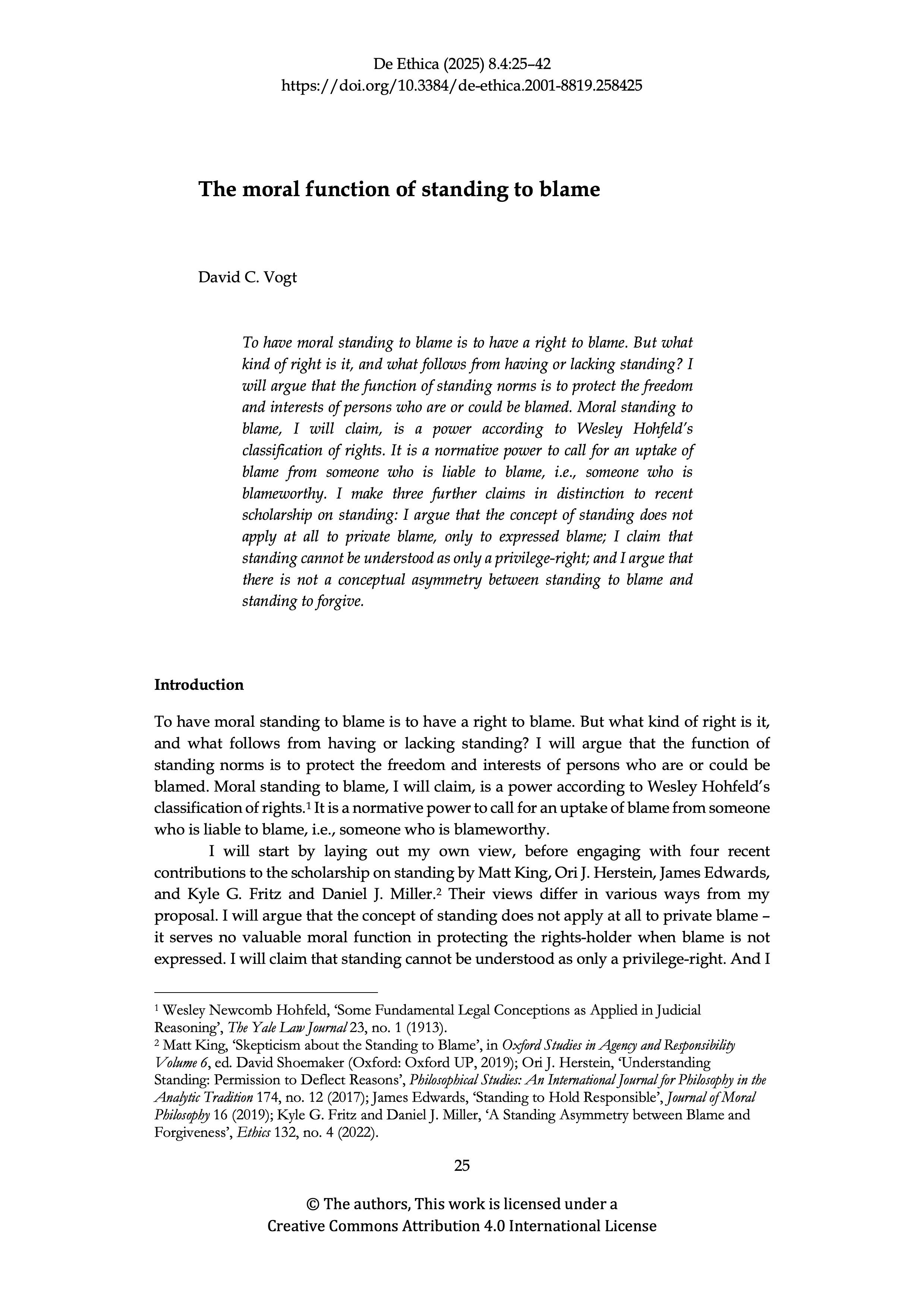What kind of right is moral standing to blame?
DOI:
https://doi.org/10.3384/de-ethica.2001-8819.258425Abstract
To have moral standing to blame is to have a right to blame. But what kind of right is it, and what follows from having or lacking standing? I will argue that moral standing to blame should be understood as a power according to Wesley Hohfeld’s classification of rights (1913). It is a normative power to call for an uptake of blame from someone who is liable to blame, i.e., someone who is blameworthy. The function of standing norms, I will argue, is to protect the freedom and interests of persons who are or could be blamed.
I make three further claims in distinction to recent scholarship on standing: I argue that the concept of standing does not apply at all to private blame, only to expressed blame; I claim that standing cannot be understood as only a privilege-right; and I argue that there is not a conceptual asymmetry between standing to blame and standing to forgive.

Downloads
Published
Versions
- 2025-04-09 (2)
- 2025-04-09 (1)
How to Cite
Issue
Section
License
Copyright (c) 2025 David Chelsom Vogt

This work is licensed under a Creative Commons Attribution 4.0 International License.
